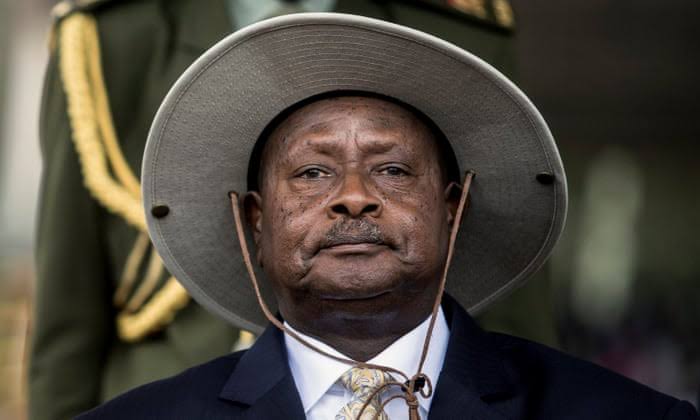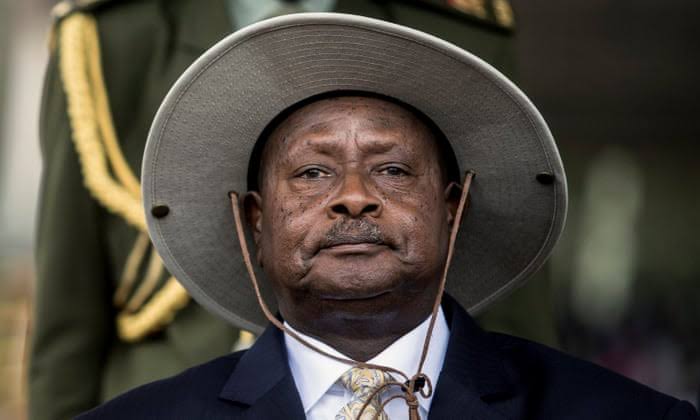
POLITICS OF AGE IN AFRICA: A DIRE NEED FOR A CHANGE IN NARRATIVE || Favour Chinenye Okpor
Politics in Africa is conterminous to chaos. Whenever the word “Africa” and “politics” marry in a sentence, images of corruption, underdevelopment, insecurity and a host of other crisis are subsequently birthed.
Despite its break from colonial rule over five decades ago, Africa still wallow in the pool of gross developmental challenges.
There seems to be no change, as entrenchment in corruption, poverty, economic instability, amongst others only deepens with increasing years.
This is without a doubt, a stark contrast to the vision held by our ancestors; a continent upheld by democracy, affluence self-government.
Amidst these challenges, one peculiar feature in African politics is in its choice of leaders. This leads one to wonder why in the face of globalization, rapid technological advancement, the continent remains plagued with the curse of the old guards?
WHY ARE AFRICAN LEADERS VERY OLD?
Gerontocracy in its peculiar term is simply leadership by the old. This leadership can be seen to have its root deeply entrenched in most African traditions, and has found its way into contemporary African politics.
Studies have shown that septuagenarians and octogenarians rule about nineteen out of the fifty-four African countries. Additional twenty more countries have leaders in their sixties, leaving less than half the total number of countries with leaders below the fifty-year-old mark.
This has spiked questions on why African leadership favours the old.
In a way, the answer can be described in an old African saying that “with old age comes wisdom and an understanding of the world.”
is then not difficult to understand why this has been the bedrock on which contemporary African leadership was born.
There exists a belief amongst most African traditionalist, that wisdom is a prerequisite for outstanding leadership and with increasing age, comes irrefutable wisdom and experience.
Contrary to this belief, modernists are of the opinion that gerontocracy is co-extensive with autocratic African traditions, which contributes to the inflexible outlook or dearth of sustained curiosity to look at things from a different standpoint.
, according to the traditionalists belief, age is directly proportional to wisdom and experience and plays a paramount role in a Nation’s development, why then does the continent still remain tightly within the grip of bone-deep crisis in almost all spheres?
THE MODERNISTS’ NARRATIVE OF GERONTOCRACY
A closer look into the continent’s demography shows an ever-growing young population. Which begs the question, why the world’s youngest continent is being run by its oldest leaders
According to a 2019 demographics projection by the United Nations, Africa is the world’s youngest continent with almost 60% of its population below the age of twenty-five.
Another statistics carried out by the United Nations World Population Prospects, in 2019, showed that 19 out of 20 of the world youngest Countries are in Africa, with Afghanistan being the only non-African country.
IS THE NORM OF LEADERSHIP IN AFRICA OKAY?
No! It has never been okay, because solving newer generation problems with older generation solutions. This is tantamount to pouring water into a basket and expecting it to be filled. These power-hungry leaders have for decades, been successful in making Africa the doormat of the world with their decades-old policies, selfish interests and non-inclusion of youths in leadership matters.
With the rising globalization, technology advancement, etc. Africa’s development will continually remain in a precarious condition if effective solutions are not promulgated.
PROBLEM OF LEADERSHIP IN AFRICA
The problem of leadership in Africa is definitely not poverty or lack of resources. But the leaders, who are rather too stiff-necked and opposed to newer innovative ideas that could bring a lasting solution to Africa’s growing problems.
A pressing need to assess the African culture in its entirety is to be taken into immediate consideration.
Unaccountability on the part of the leaders, who have for decades been served, rather than serve the people, greatly attributed to Africa’s highly conservative and permissive culture.
This allows for silence on the part of the youths, who are used to assertive style of leadership rather than participative ones.
Africa can be described as a car that is being driven by someone who never went to driving school or possesses any knowledge of what good driving entails.
What would be the outcome of such journey?
Of course, it is pure disaster! While foreign aids are beneficial, they are also detrimental in the sense that they have aided corrupt practices, blurring of the middle class line with selfish policies, civil discord, and promotion of a dependency culture.
With the growing evolution, Africa needs to leave the backseat in the international scheme of things if they are to achieve the development they need.
The solution to Africa’s problem, according to Barrack Obama, lies in looking within and not fruitlessly searching outside. The power to drive things the way they should be, have for a long time, left the hands of the gerontocratic leaders and fallen into the laps of the younger and more active generation, which begs yet another question; are the youths ready to take over? Yes!
THE YOUTHS AND AFRICA’S DEVELOPMENT
According to Peter Ayeni, a 2018 Mandela Washington fellow, he described the youths as being “agile, resilient, adaptable, innovative, receptive and primarily attuned to newer opportunities”, and this could drastically change the course of African leadership if the youths potentials are properly harnessed and channeled towards all-round development.
Youthful intellect and relevant skills are needed to productively handle newer generation problems, and uproot us from the mess we have been plunged into by their old predecessors.
The youths have been greatly marginalized and excluded from decision making, but now is the time for a change in the narrative.
Africa is in dire need of newer policies, championed by radically optimistic individuals that are burning with creativity and energy.
PROBLEMS THE YOUTHS FACE IN AFRICAN LEADERSHIP
One major roadblock youths face regarding leadership is a costly curriculum for leadership development. This has greatly impaired youth’s involvement in politics, as these trainings are not affordable.
In addition, African youths are being oppressed into silence by bad governance, poverty, corruption, nepotism, religious bias, to mention a few.
SOLUTIONS TO THESE PROBLEMS
Firstly, a change in the mindset of each youth is urgently.
The solution to any problem begins with overcoming the obstacles of the mind.
A change in mindset can be done through the following means: Education provides a platform for the youths to spread their tentacles and test the height of their flight. Poor education is synonymous to a bird with broken wings; it would remain perched at the tree waiting for a help that may never come.
Africa’s education remains a growing cause for concern, with over half its young population not having access to secondary school education.
Non-profit Organizations are therefore charged with revered responsibility of breaking the backbone of illiteracy and equipping the young ones with the right mindset, soft skills, and vocational trainings, amongst others, that would go a long way in turning the tides of the Nation.
An increase in African Development Leadership Agencies with the aim of changing the narrative by equipping youths with the wherewithal to positively channel their potentials and ethical intellect into gybing this great continent from incipient doom. These agencies are pivotal change agents needed in current times.
THE ROLE OF AFRICAN DEVELOPMENT LEADERSHIP AGENCIES
A proper adaptable curriculum with more practical than theories that would give the youths a chance in a rapidly evolving world is greatly needed.
These agencies should promote technologically-driven solutions, empower youths by strategically positioning them in a way their unleashed potentials would be of positive benefits to the continent and world at large.
These change agents, with an already changed mindset, should leverage on both entrepreneurial and non-profit platforms for maximal effective transformation. All these should be done with a passion for youth-inclusive leadership.
In conclusion, there is a dire need, now more than ever, for a youth-inclusive leadership in Africa before Africa can move forward and embrace development in its entirety.
Although, no one knows what the future holds. here is a 100% likelihood that if we wait and do nothing, the African Dream will remain a dream, and Africa itself will become a story of utter dejection, devastation and doom.
BIO
Favour Chinenye Okpor is a Nigerian-born Poet, Creative writer, Editor, Certified Copywriter, Medical Physiologist and enthusiastic volunteer.
She is currently the content creation team lead for Student Network, a student/fresh graduates oriented organization geared towards preparing them for the future of work. Her poems and short stories have been published in anthologies and blogs. She is currently working on her first novel. You will find her on Instagram @favourchinenye_007.


